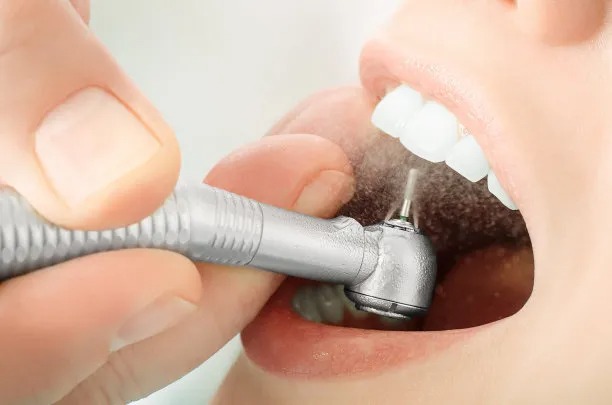Summary: Dental implants offer a permanent solution for missing teeth, enhancing both functionality and aesthetics. However, achieving a successful implant procedure and a smooth recovery process requires careful planning and attention to detail. This article explores essential considerations such as patient evaluation, surgical expertise, post-operative care, and lifestyle modifications that directly influence the success of dental implants. By understanding these factors and adhering to recommended precautions, patients can significantly improve their outcomes and reduce potential complications. In the following sections, we delve deeper into each aspect to ensure that individuals are well-informed and prepared for their dental implant journey.
1. Comprehensive Patient Evaluation Is Crucial

A thorough evaluation is the cornerstone of a successful dental implant procedure. Before the surgery, dentists must conduct a comprehensive assessment of the patients oral and overall health. This assessment includes taking dental X-rays and 3D imaging to analyze bone structure and identify any underlying issues that could interfere with the implant.
Patients with certain medical conditions, such as uncontrolled diabetes or autoimmune diseases, may face higher risks during surgery. Therefore, informing the dental team about any pre-existing conditions is essential for personalized planning and care. The evaluation also helps in understanding the patients expectations and preferences.
Moreover, a detailed dental history allows the dentist to identify any previous dental treatments that might impact the procedure. Overall, a comprehensive patient evaluation ensures that both the dentist and the patient are on the same page, making the procedure more likely to succeed.
2. Selecting the Right Surgical Expertise Matters
During consultations, its essential to ask potential dentists about their success rates and past experiences. Patients might also benefit from searching for reviews and testimonials from former clients, which can provide valuable insights into the dentists skills and approach to care.
Additionally, a reputable dental implant specialist should use state-of-the-art technology and techniques, as these can greatly improve surgical precision and patient comfort. The more advanced the technology, the higher the chances of a seamless procedure and recovery process.
3. Effective Post-Operative Care Is Essential
The importance of post-operative care cannot be overstated when it comes to dental implants. After the procedure, dentists often provide specific instructions regarding oral hygiene and dietary restrictions during the initial recovery phase. Following these guidelines is crucial for preventing infections and promoting healing.
For instance, patients are usually advised to avoid hard or chewy foods right after surgery. Instead, a soft food diet is typically recommended to reduce stress on the implant site. Additionally, using prescribed antiseptic mouthwash can significantly help diminish the risk of bacterial infections in the surgical area.
Regular follow-up appointments are also vital. These visits allow the dental team to monitor the healing process and address any complications that may arise. Being proactive in managing post-operative care can lead to better long-term outcomes for dental implants.
4. Lifestyle Modifications Enhance Success Rates
Since lifestyle choices can significantly impact the healing process and success rates of dental implants, it’s essential for patients to make necessary adjustments. Firstly, quitting smoking is highly recommended, as smoking can impair blood flow and slow down healing, increasing the risk of complications.
Similarly, maintaining a balanced diet rich in vitamins and minerals is crucial for the healing process. Incorporating foods high in calcium and vitamin D can strengthen bone density, thus supporting the implants long-term stability. Additionally, staying hydrated helps maintain overall health and promotes healing.
Finally, maintaining excellent oral hygiene is fundamental. Patients should continue brushing and flossing as recommended while considering the use of softer toothbrushes to avoid disturbing the surgical site. Consistent oral care will not only benefit the implants but improve overall oral health.
Summary: Ensuring a successful dental implant procedure involves considering multiple aspects, starting with a comprehensive patient evaluation to choose the right surgical expertise. Effective post-operative care and necessary lifestyle modifications further enhance the likelihood of success. By following these important considerations and precautions, patients can navigate their dental implant journey with greater confidence and optimism.
This article is compiled by Vickong Dental and the content is for reference only.
Vickong Dental
Vickong Dental is a large medical group established in Hong Kong in 2008 by professors from well-known medical universities in Guangdong and Hong Kong, as well as medical doctors from key national '985' universities (including Master's supervisors and senior professors). The chain of branches brings together expert dentists with PhDs and Master's degrees from Hong Kong and Mainland China, committed to providing high-quality dental treatment.
"Vickong Dental Practices the University Motto of 'Healing and Serving Society,' with a Stable Operation for Sixteen Years. It Has Been honored with Hong Kong Enterprise Leaders's Choice,' and is a Global Trusted Implant Center for the Nobel Implant System. Recommended by Hong Kong Metro Broadcast and Guangdong Television, it Serves Customers from Over Thirty Countries and Regions, Gaining the Trust and Favor of Citizens from the Guangdong-Hong Kong-Macau Greater Bay Area and Surrounding Cities.

Thousands of customers' unanimous praise
The most recognized and highly recommended dental service by customers in the Guangdong-Hong Kong-Macau Greater Bay Area
We Ensure You Receive Detailed Care and Attention Here
Hong Kong standards, Shenzhen prices, Your Trusted English-speaking dentists

Vickong Dental Medical-Grade Instrument Disinfection Process
Vickong Dental Medical-Grade Instrument Disinfection Process

Vickong Dental Chain: A Warm and Comfortable Environment for Treatment






Appointment Hours

Q&A
Why choose Vickong Dental?
Vickong Dental practices the university motto 「Medicine to Benefit Society」, with each branch bringing together highly qualified dentists with doctoral and master’s degrees from Hong Kong and the Mainland, and has maintained seventeen years of steady operation。Recipient of 「2024 Hong Kong Enterprise Leaders Brand」, 「2025 Hong Kong Enterprise Leaders Brand」, a Nobel Biocare Global Trusted Implant Center, and a brand recommended by Metro Radio Hong Kong and Guangdong TV。
To date, we have served customers from more than thirty countries and regions,earning exceptionally high word-of-mouth recognition and trusted recommendations from residents across the Guangdong-Hong Kong-Macao Greater Bay Area and surrounding cities
We have eight major branches in Zhuhai、Shenzhen,and a consultation and service assurance center in Hong Kong,so you can book a free consultation at any time for any questions,which is very reassuring.
If I do not accept the quotation after the CT scan, will I be charged??
No! As long as the actual treatment has not started, you will not be charged any fees.
Will there be any additional charges during the treatment process?
No, there won’t be any additional charges. Before treatment begins, we will clearly explain the treatment plan and its corresponding fees. Only after the patient agrees and signs the consent form will we proceed with the dental service.
Can I pay in Hong Kong dollars?
Yes. Vickong Dental accepts payment in Hong Kong dollars. The amount will be converted based on the exchange rate of the day, and the applicable rate will be clearly communicated to you in advance.
Can I reschedule my appointment at any time?
Yes. Please contact us via **WeChat** or **WhatsApp** as early as possible, providing your original appointment time and details, along with your preferred new date and time slot for rescheduling.













